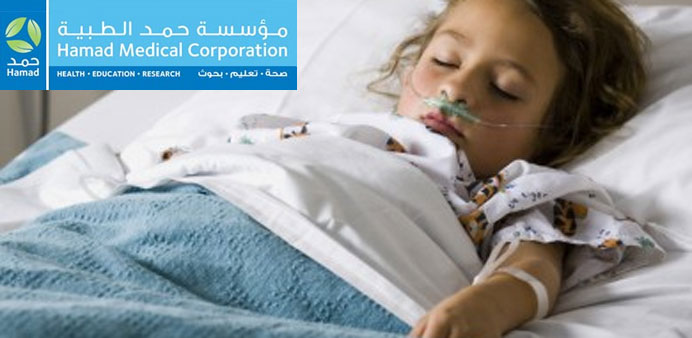Doha
Hamad Medical Corporation ( HMC) has reiterated that with effect from April 1, all children seeking treatment at HMC's Paediatric Emergency Centres must be accompanied by a parent or legal guardian to receive non-urgent medical care.
According to Dr. Khalid al-Ansari, medical director of the Paediatric Emergency Services at HMC, this new rule is applicable to all HMC’s network of hospitals and facilities and is a precautionary effort to prevent children being brought by the family’s housekeeper, helper or driver instead of a parent or guardian.
“As with adults, we have a duty of care to ensure that any child requiring medical assistance is given the safest and most effective treatment,” explained Dr al-Ansari. “It is desirable that before a doctor can treat a patient, they need a family member to give their consent for medical procedures to be undertaken, or for medication or therapies to be administered,” said Dr. al-Ansari.
“According to Article 49 of Qatar Civil Law - Number 22 of 2004, adulthood starts from 18 years of age in Qatar. Anyone under the age of 18 is considered to be a minor, thus we need to have an adult parent or guardian to give consent on a child’s behalf to carry out any medical procedures,” he noted.
There are very important and practical reasons why this ruling requires that a sick child must be accompanied by his or her parent. It is only a parent who can provide details of a child’s medical history including medication allergies and immunisation records.
“If a parent is present during their child’s assessment, they will be able to receive first-hand, all the necessary advice about medication and any follow-up care pertaining to their child’s health,” stressed Dr. al-Ansari.
There are also often language barriers between healthcare workers and helpers or drivers. Having a parent or guardian present ensures they get vital information about their child’s condition directly and are then able to make informed decisions about next steps,” he said.
However, Dr. al-Ansari emphasised that when implementing the new measures, no child brought into PEC without a parent will be turned away.
“Any child requiring urgent and critical care is attended to and put in a stable condition until a parent arrives and other necessary procedures can be done. PEC staff will make all efforts to contact the child’s parent and keep them informed until they arrive,” he said.
Dr. al-Ansari acknowledged that there may be cases where a child’s parents are not able to attend. He said in such cases, PEC will prefer that a blood relative such as a grandparent, uncle or aunt be with the child to provide the necessary emotional and psychological support that the child requires during their assessment.
“Non-urgent cases are assessed, made comfortable and kept in the PEC waiting area with their helper or driver until a parent arrives and a full assessment of the child can be undertaken. In this case, the child may have to wait longer than usual,” added Dr. al-Ansari.

